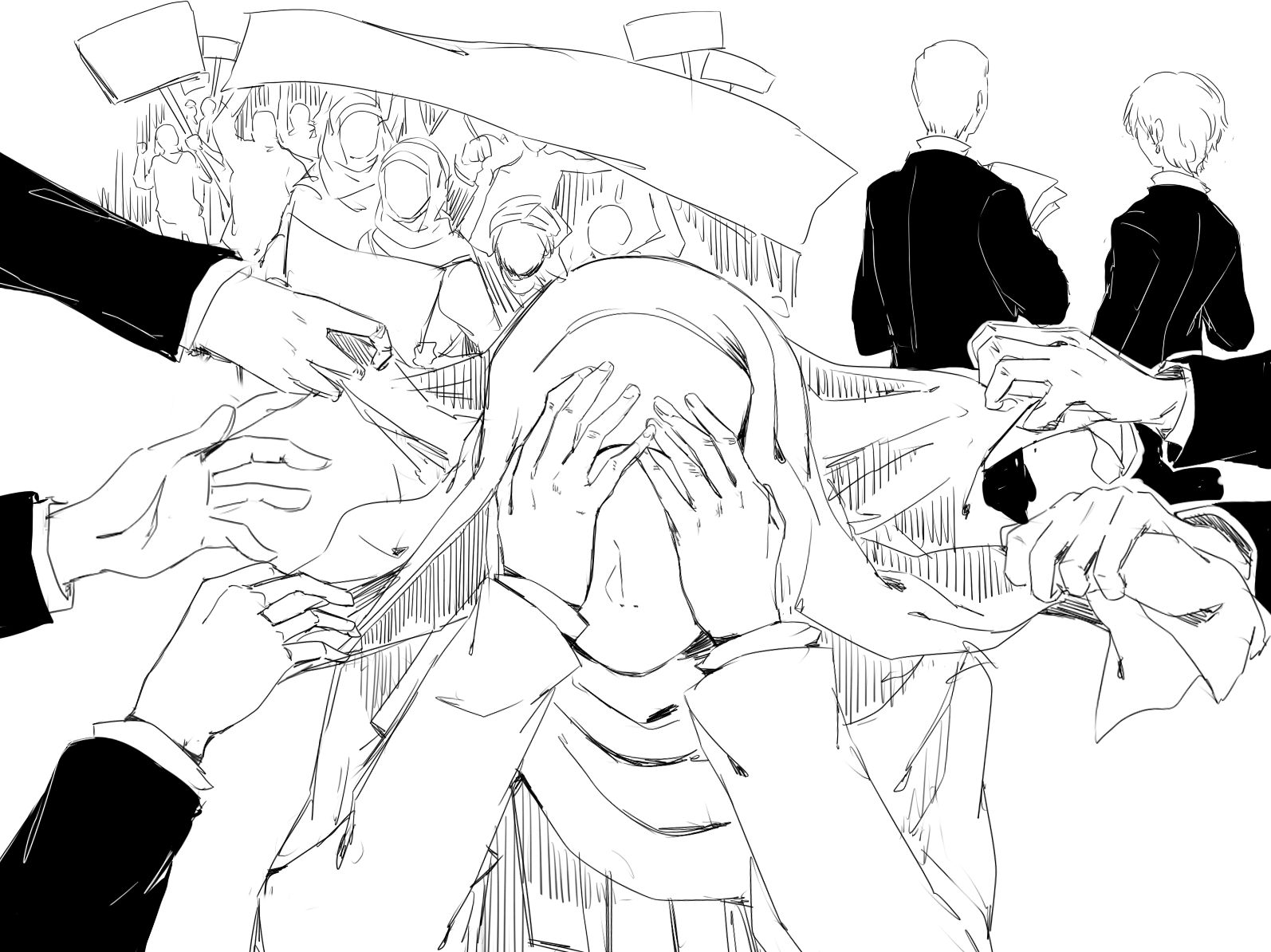Newly-elected Premier and leader of the Coalition Avenir Quebec (CAQ) François Legault recently shuffled his cabinet, naming Isabelle Charest the new Minister responsible for the Status of Women. Charest sparked controversy in early February for insisting that the “hijab is a symbol of female oppression.” When criticized for her comments, she refused to apologize or rescind her statement, citing her belief that women should be free to dress as they choose. Her comments fall in line with other sentiments expressed by Legault and his party, who plans to ban the hijab for ‘authority figures’ like judges and teachers. The policing of women’s clothing, especially when disguised as ‘feminist’ or as a form of liberation, exemplifies a disregard for the rights of those from different backgrounds. White women and feminists, like myself, should demonstrate proper allyship and aid in dismantling systems that we benefit from—and that starts with calling it out.
Facing criticism for her initial comments, Charest still stood behind her discriminatory statements.
“I think women should be free to wear what they want,” Charest said in a press conference on Feb. 5.
Herein lies her hypocrisy: Defending women’s freedom to dress while simultaneously calling for a hijab ban promotes conditional freedom of choice for women, whereby only those who conform to certain ‘Québécois values’ are seen as deserving of fair treatment. If Charest is genuinely concerned with women’s autonomy, perhaps she should listen to the experiences of women who choose to wear the hijab.
Clothing is integral to self-expression, and you can learn a lot about a person from the way they dress. When a Muslim woman chooses to wear a hijab, she freely expresses her culture, values, religion, and identity—something that feminists should celebrate. No woman should have to choose between accurately representing her identity and being able to live comfortably in Quebec. Feminists should not support a ban on any kind of clothing, especially gendered clothing like the hijab.
Of course, it is naive and ignorant to assume that this debate restricts itself to one form of oppression. Charest’s comments exist at the intersection between sexism, Islamophobia, and xenophobia. Quebec has a problem with hate crimes, especially regarding Islamophobia, and, thus, Muslim women experience a much different province than non-Muslim women. Charest and her followers aren’t expressing concern for freedom and equality for women so much as they want to codify their distaste for those who are different from them. Solving this issue means tackling many forms of systemic oppression.
Feminism has taken many forms throughout the movement’s history. Though the changes sparked by the movement should be celebrated, it is even more important to highlight how feminism could have been and can continue to be more inclusive of women with diverse life experiences. Intersectional feminism calls for a movement which represents the interests of all women, not just those who are white, wealthy, straight, able-bodied, and cisgender. The time has come to abandon the white feminism behind actions like Charest’s and start listening to what Muslim women want and for white women like myself to start listening.









